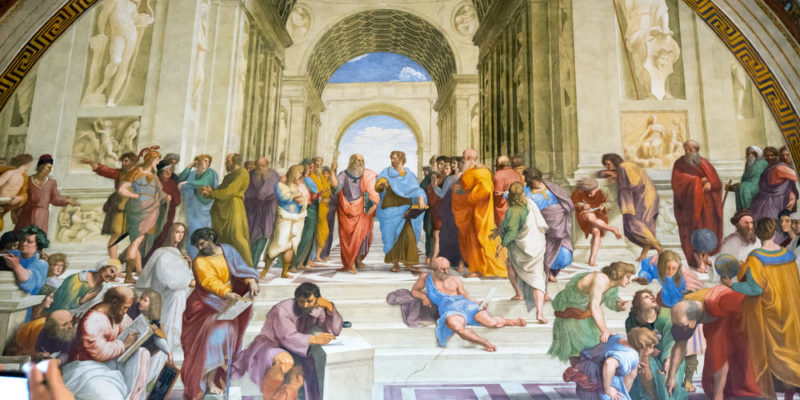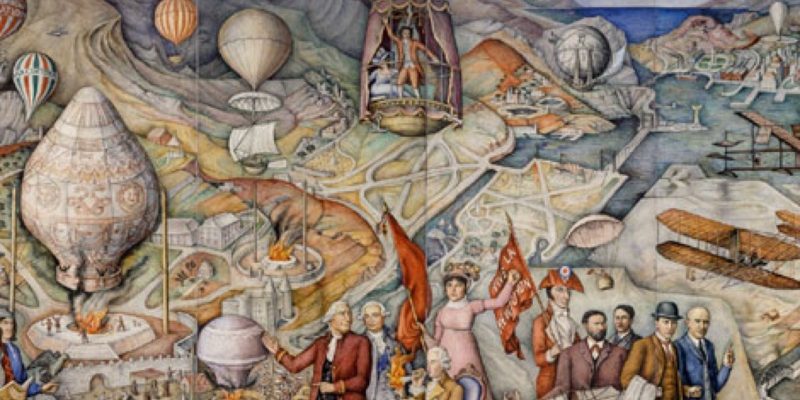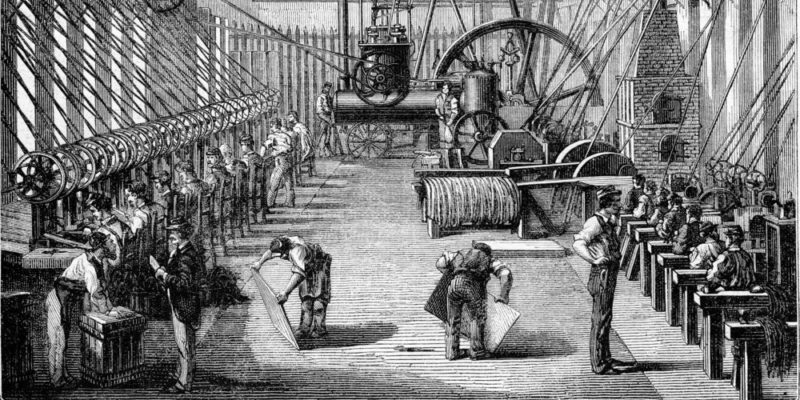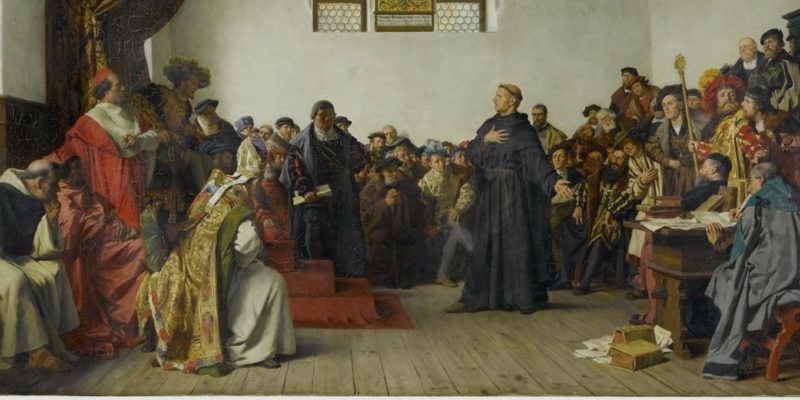We explain what modernity is and the changes it has produced since the 15th century. Also, what are its characteristics and division of powers.
What is Modernity?
Modernity is a set of social and historical processes that took place in Europe from the fifteenth century , at the beginning of the Renaissance , which marks the end of the Middle Ages .
Along with changes in thought , which prioritize rationality, individualism, and scientific thought, there are political changes that profoundly modify the political institutions of states , as well as the delimitation of new political and economic frontiers.
Although the changes of Modernity are gradual, they affect the entire spectrum of human experience : social life, work , the inhabited space, power relations, aesthetic experiences, etc.
Characteristics of Modernity:
Rationality

Rationality, as opposed to religion, is one of the axes of modern thought . Religion ceases to be the basis for understanding and explaining the world, and in its place science is established as a legitimizing discourse. The myth is replaced by reason.
-
Subjectivity
Nation states
Since the beginning of the Modern Age , political-territorial structures similar to those that currently exist have begun to be defined. A nation state has a delimited territory, a constant population (although there are migratory phenomena) and a defined government. Its official foundation dates back to 1648, when at the end of the "Thirty Years' War", the Treaty of Westphalia was signed, which put an end to the feudal order (typical of the Middle Ages).
-
Division of powers
 In contrast to the feudal form of government , with a single ruler who obtained his legitimacy from the military power and the Church , Modernity brings with it the division of power into three different institutions:
In contrast to the feudal form of government , with a single ruler who obtained his legitimacy from the military power and the Church , Modernity brings with it the division of power into three different institutions:
- Executive power . Design and execute policies.
- Legislative power . Debate and approve laws related to the policies designed by the executive power.
- judiciary . It administers justice through the application of the approved laws.
Discovery of America
The discovery of America is one of the triggers of Modernity , but it is also one of its symptoms: the trip was made possible thanks to the scientific calculation that the Earth is not flat. In addition, it was motivated by commercial expansion purposes, a need of a capitalist economic model that was just beginning to develop but that would be characteristic of Modernity.
The discovery of a new continent , from the European point of view, allowed the exploitation of new territories and slave labor (therefore free), being the basis for later economic developments.
-
Industrial society
 The change from a rural society to an industrial society was gradual, but no less decisive for that. The characteristics of this type of society, which appeared with Modernity, are:
The change from a rural society to an industrial society was gradual, but no less decisive for that. The characteristics of this type of society, which appeared with Modernity, are:
- Increased production through organization and division of labor .
- Development of factories where work is organized.
- Invention and manufacture of machines that replace manual labor. This is an antecedent of the technological innovations aimed at increasing profits that will continue to be valid to this day, in which scientific and technological developments are constantly applied to production.
- Emergence of a new social sector: wage earners.
Urban Development
Industrial society requires a concentration of population since work is organized in factories . The cities become centers of production but simultaneously in the places of greater consumption of goods , services and energy .
-
Protestant reformation
 This religious movement was started in Germany in the 16th century by Martin Luther, which is why it is also known as the Lutheran Reformation. The Catholic Church, until then undisputed Christian church, is divided by the criticism that various priests and thinkers made against the institution.
This religious movement was started in Germany in the 16th century by Martin Luther, which is why it is also known as the Lutheran Reformation. The Catholic Church, until then undisputed Christian church, is divided by the criticism that various priests and thinkers made against the institution.This movement was only possible in the context of Modernity , due to the new conception of the individual as a critical and rational being. Although reason was philosophically opposed to religion, in the case of the Reformation we observed that individuals of deep religious faith encouraged critical thinking.
Rejection of tradition
Modernity is characterized by the desire for a break with the previous , embodied in tradition . In art and thought, the creator seeks his antecedents not in the near past (the Middle Ages) but in the remote past (the Ancient Age ). Outside of that old reference, Modernity is characterized by the attraction of the new, innovations , ruptures and discoveries.
-
Bureaucracy
The above content published at Collaborative Research Group is for informational and educational purposes only and has been developed by referring reliable sources and recommendations from experts. We do not have any contact with official entities nor do we intend to replace the information that they emit.
MA student of the TransAtlantic Masters program at UNC-Chapel Hill. Political Science with a focus on European Studies. Expressed ideas are open to revision. He not only covers Technical articles but also has skills in the fields of SEO, graphics, web development and coding. .
Leave a reply
Your email address will not be published. Required fields are marked *Recent post

Sport: What Is It, Types, Risks, Features, Characteristics and Examples

Dogs: Emergence, Features, Characteristics, Feeding and Breeds

Story: Definition, Elements, Structure, Features and Characteristics

